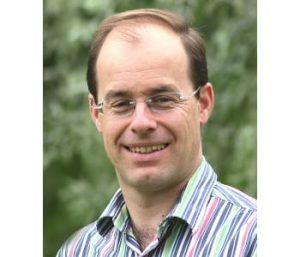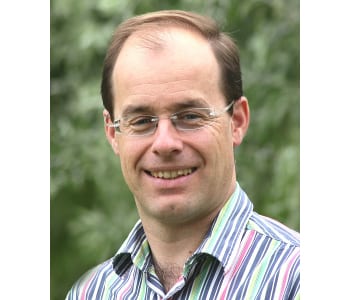 We are delighted to welcome Prof. Henning Sirringhaus from the University of Cambridge to the Advisory Board of Advanced Electronics Materials. Henning brings vast expertise to the journal as one of the outstanding researchers in the field of organic electronics, being distinguished for his studies on charge transport in organic semiconductors and device engineering. He contributed significantly to the development of organic transistors from a laboratory curiosity to a manufacturable technology. We asked him about his appointment to the board, and his research, career and aspirations.
We are delighted to welcome Prof. Henning Sirringhaus from the University of Cambridge to the Advisory Board of Advanced Electronics Materials. Henning brings vast expertise to the journal as one of the outstanding researchers in the field of organic electronics, being distinguished for his studies on charge transport in organic semiconductors and device engineering. He contributed significantly to the development of organic transistors from a laboratory curiosity to a manufacturable technology. We asked him about his appointment to the board, and his research, career and aspirations.
Can you briefly comment on how your research focus has evolved over the course of your career and what inspired you to follow these specific research topics?
I started out in my PhD in a relatively esoteric area of fundamental solid state physics without very clear technological context and then moved in my first post-doc into a field which was very applied, where I discovered that most of the interesting science had been done long before I joined. My inspiration to work on organic materials was to contribute to a field that is both scientifically dynamic and vibrant but has a clear technological context.
What would you consider to be the major scientific achievements in your career?
I am always most excited by our most recent advances because they usually build on a chain of knowledge, which sometimes makes previous achievements appear rather obvious. I think it is best to let others judge whether we have made any useful scientific achievements.
What aspects of your job do you enjoy most and what are the greatest challenges you are facing in your daily work?
I most enjoy working with very bright young students and researchers. It is a continuous struggle to reserve enough time for creative thinking and interactions and not be completely absorbed by everyday demands.
What are your scientific goals for the next ten years?
We would like to get to a true molecular/atomic scale understanding of the fundamental transport processes in organic and hybrid organic-inorganic materials and through better understanding of their physics discover new phenomena and new potential applications of these materials.
Besides holding the Hitachi Professorship of Electron Device Physics and being head of the Microelectronics Research Centre at the Cavendish Laboratory, you are co-founder and chief scientist of Plastic Logic Ltd., a technology start-up company commercializing printed organic transistor technology. What advice would you give young researchers seeking for a similar career?
It takes some courage for a young researcher to decide to devote some of his/her precious time to industrialization of research breakthroughs. I have never regretted this, because it has given me a fascinating insight into the challenges of taking basic materials inventions into large-scale manufacturing technologies and it has, as far as I can tell, never affected my academic career negatively. But it is also important not to be drawn into responsibilities that one is simply unable to fulfill well.
How do you see the future of organic electronics?
Organic semiconductors continue to surprise me. The community continues to find fascinating and unexpected properties of organic materials both in their own right but also increasingly in combination with low temperature inorganic materials. The rapid success of OLED technology is demonstrating that these materials can enable real, large-scale technologies, so I am convinced that the future of organic electronics is bright.
When you have time off work, what other interests apart from science do you have?
I have three young children who are very good at determining what interests I should have when I am off work. When they run out of ideas I like to spend as much time as possible outdoors.

















